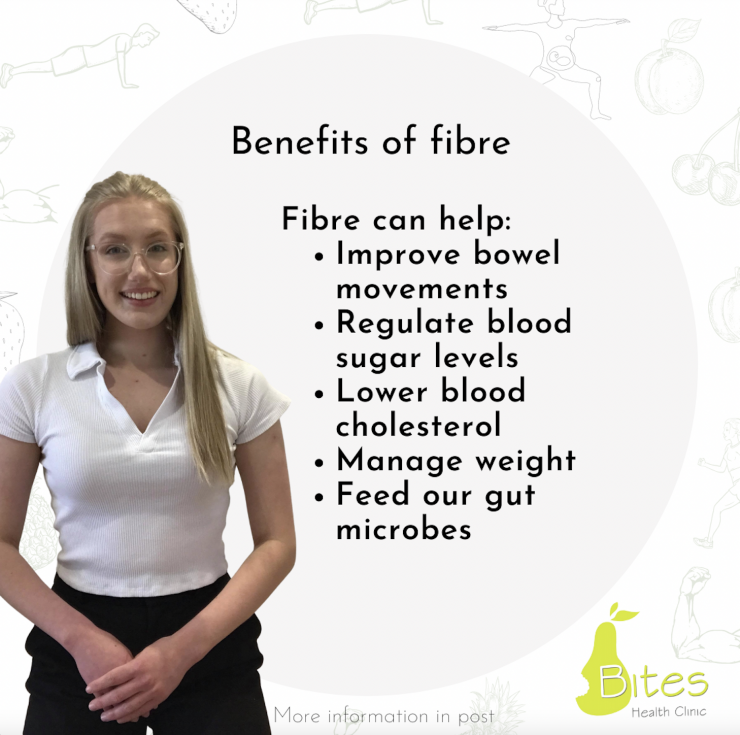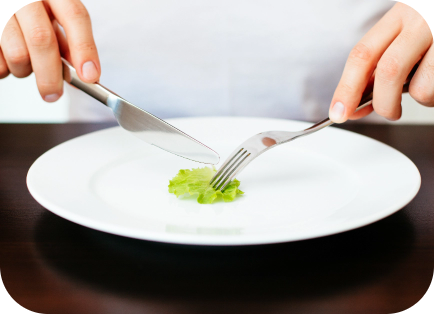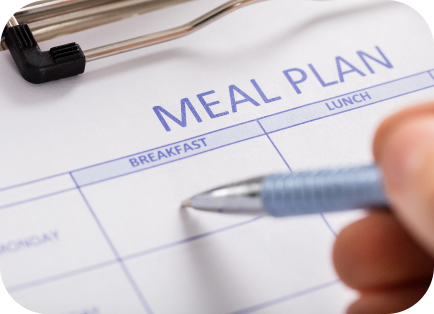
It’s recommended we get 25-30 g of fibre per day, but most adults in Australia only get 20g on average. Inadequate fibre is linked to many conditions including constipation, heart disease, bowel cancer, breast cancer, diabetes and obesity.
But what even is fibre? Fibre is any part of food that can’t be broken down in our stomach or intestines. There are two main types each with their own unique health benefits.
1. Insoluble fibre:
- Speeds up digestion
- Adds bulk to stools to help keep you regular
- Can help prevent constipation and haemorrhoids
- Sources include wholegrain bread and pasta, skin on fruit and vegetables, lentils and nuts and seeds.
2. Soluble fibre:
- Absorbs water to form a gel-like substance
- Slows digestion to help regulate blood sugars
- Can aid constipation and diarrhoea by drawing water into stools to help soften hard stools AND can absorb water to improve the consistency of loose stools.
- Helps lower ‘bad’ cholesterol
- Feeds the good bacteria in our gut. Bacteria ferments this fibre to produce short-chain fatty acids that promote good gut health and may reduce the risk of colon cancer!
- Sources include fruit and vegetables (e.g., carrots and apples), oats. legumes (e.g., chickpeas) and chia seeds and psyllium husks.










